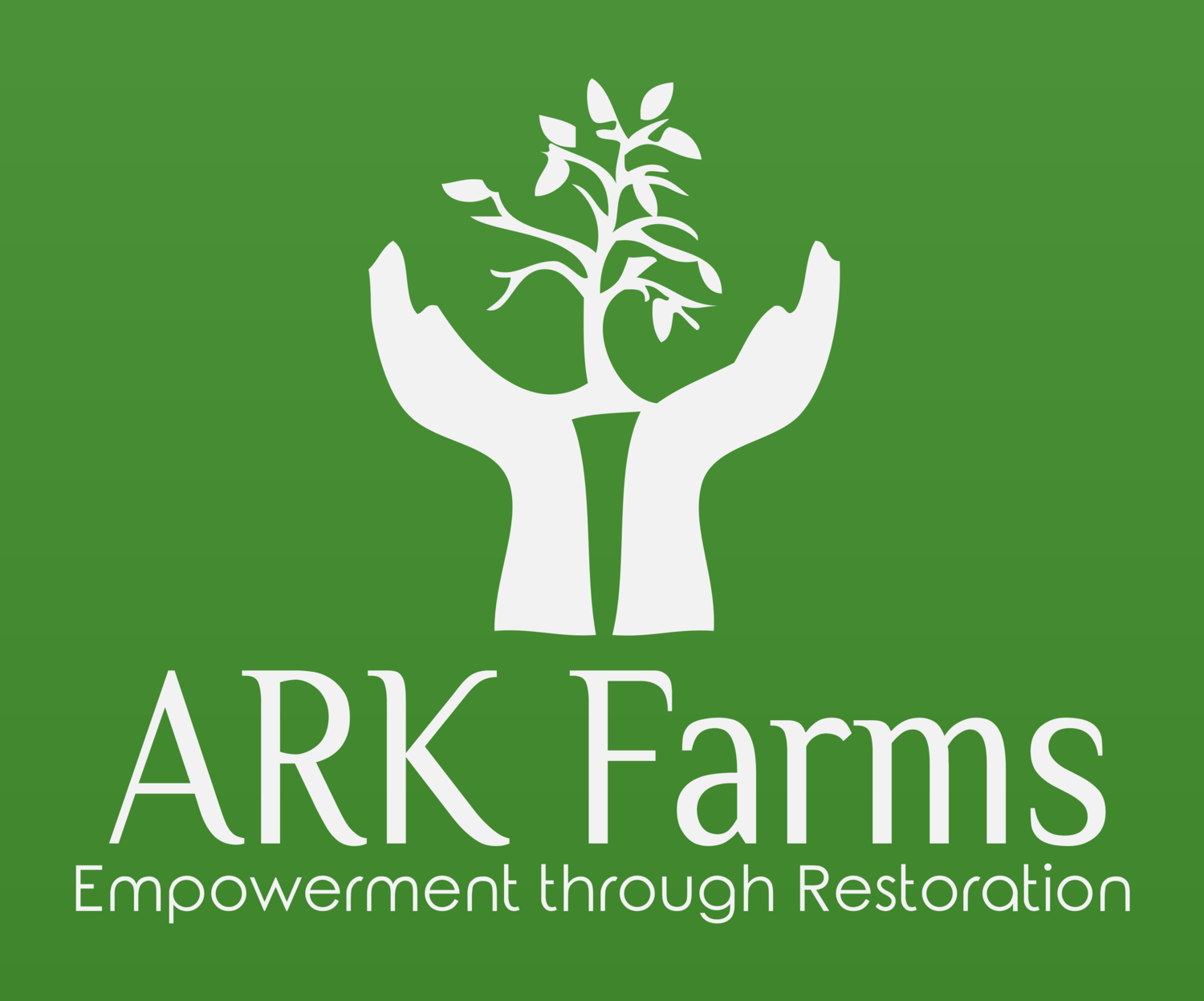The Power to Restore life
What is ARK Farms Doing
One "Wow, you're really good at that", can counter a lifetime of "You'll never amount to anything". I am living proof of it - and every week I see the power of that truth played out in the lives of people at ARK Farms.
Our participants are not a problem to be solved, they are part of a solution that builds life. By working with people to restore life at the farm, they experience the power of being meaningful in the life of another. Add to that learning a new skill, becoming a valued member of a team, working toward a goal you see accomplished, and finding assets within yourself that matter to the community -- this is how Empowerment both comes from Restoration and yields it.
At ARK Farms it doesn't matter who’s who in the zoo or what happened to you, we are just happy you are here. We believe that there is something indelibly good in each and every person, and working together we discover how to see the wonderful in each one and how them just being themselves matters to the world at ARK Farms.
Every time someone champions a small animal or learns how to share space with a large one, they experience connection. Every time we put a power tool in the hands of someone who has felt untrustworthy, they experience belonging and trust. Every time a group says, "Hey we need you", the value of belonging and knowing they matter grows! We empower people to restore, and through that experience, they are restored too.
What ACEs Are:
According to research by the Centers for Disease Control, Adverse Childhood Experiences, or ACEs, are adverse childhood experiences that harm children’s developing brains so profoundly that the effects show up decades later; they cause much of chronic disease, most mental illness, and are at the root of most violence.
The 10 ACEs the researchers measured:
— Physical, sexual and verbal abuse.
— Physical and emotional neglect.
— A family member who is:
depressed or diagnosed with other mental illness;
addicted to alcohol or another substance;
in prison.
— Witnessing a mother being abused.
— Losing a parent to separation, divorce or other reason.
Of course, there are many other types of childhood trauma — such as witnessing a sibling being abused, witnessing violence outside the home, witnessing a father being abused by a mother, being bullied by a classmate or teacher – but only 10 types were measured. They provide a useful marker for the severity of trauma experienced. People have an ACE score of 0 to 10. Each type of trauma counts as one, no matter how many times it occurs. Because we know that other types of trauma may have a similar impact, and many traumas are never reported due to shame or a stigma, it is safe to assume that many of the people walking around in our communities have experienced an adverse childhood experience.
The effects of Aces
The more ACEs you have, the greater the risk for chronic disease, mental illness, violence and being a victim of violence. People with an ACE score of 4 are twice as likely to be smokers and seven times more likely to be alcoholic. Having an ACE score of 4 increases the risk of emphysema or chronic bronchitis by nearly 400 percent, and suicide by 1200 percent. People with high ACE scores are more likely to be violent, to have more marriages, more broken bones, more drug prescriptions, more depression, and more autoimmune diseases. People with an ACE score of 6 or higher are at risk of their lifespan being shortened by 20 years.
Who is affected?
There is a disparity in understanding where these troubling adverse childhood experiences are likely to occur, and in part that has led to a lot of prevention and care being focused on under-resourced, under-priviledged, inner city "at-risk" neighborhoods. What’s particularly startling is that the 17,000 ACE Study participants were mostly white, middle- and upper-middle class, college-educated, and all had jobs and great health care (they were all members of Kaiser Permanente). Here is the tricky part, people from good, well-respected, socially connected families have fewer options when facing the challenges of ACEs, for no other reason than the stigma of something being wrong with us. I know first hand the shame involved in reaching out for help when it can never be known that our family has issues.
countering the affects of ACES
Resiliency is powerful- it gives people the ability to bounce back, to move beyond what has happened to them by focusing on what is GOOD in them! Here is a list of resiliency builders according to Nan Henderson, M.S.W of "Resiliency in Action":
Relationships — Sociability/ability to be a friend/ability to form positive relationships
Service – Giving of yourself to help other people; animals; organizations; and/or social causes
Humor — Having and using a good sense of humor
Inner Direction — Basing choices/decisions on internal evaluation (internal locus of control)
Perceptiveness — Insightful understanding of people and situations
Independence — “Adaptive” distancing from unhealthy people and situations/autonomy
Positive View of Personal Future – Optimism; expecting a positive future
Flexibility — Can adjust to change; can bend as necessary to positively cope with situations
Love of Learning — Capacity for and connection to learning
Self-motivation — Internal initiative and positive motivation from within
Competence — Being “good at something”/personal competence
Self-Worth — Feelings of self-worth and self-confidence
Spirituality — Personal faith in something greater
Perseverance — Keeping on despite difficulty; doesn’t give up
Creativity — Expressing yourself through artistic endeavor, or through other means of creativity
We Help People Be More Resilient by…
1. Communicating the Resiliency Attitude: “What is right with you is more powerful than anything wrong with you.”
2. Focusing on the person’s strengths more than problems and weaknesses, and asking “How can these strengths be used to overcome problems?”

